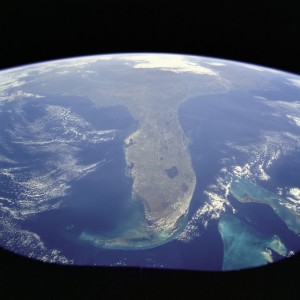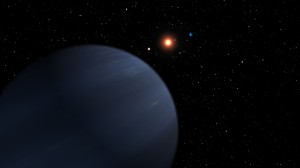
Image Credit: NASA
The answer for a certainty is yes. Anyone who thinks otherwise may not appreciate mankind’s desire to explore. Columbus, Magellan, Robert Edwin Peary, Marco Polo and countless others, for whatever their individual reasons were, felt compelled to venture out into the unknown. Whether for riches, fame, or curiosity, all of the above mentioned explorers packed their bags and left.
Anyone with a basic knowledge of history can see that mankind has been day dreaming about leaving
Earth for more than a century. The fascination for space goes back for many centuries before the 20th century (think Galileo), but the realization that space travel could be a very reachable endeavor, really settled into the minds of scientists and the public alike within the last 150+ years.
Why were so many drawn to Jules Verne’s novel From the Earth to the Moon written in 1865, or movies like The Forbidden Planet (1956), 2001 A Space Odyssey (1968), and Armageddon (1998)? What about television shows like the original Star Trek (1966) and each of its sequels, Battlestar Galactica (1978) and its sequel (2004)? The market that they serve is the same market that is filled with wishful space explorers.
Recall President Kennedy’s Moon speech on September 12, 1962? “We choose to go to the moon… (applause) we choose to go to the moon in this decade and do the other things, not because they are easy, but because they are hard…”
No doubt, many millions of people wish that they could go out there, where no man has gone before. But, only a fortunate few, at least in the beginning of the space tourism industry, have the means and the way. More than 300 wealthy, future, civilian astronauts, have paid in full or placed a deposit with Virgin Galactic for a seat aboard SpaceShipTwo.
This is nothing new. There was a time when only the affluent could afford cars, VCRs, DVD players, camcorders, computers, cable television, cell phones, and yes, even airplane flights. In time (my guess is within 20 years), at a minimum, low Earth orbit (LEO) flights will be an affordable getaway for the middle class. The innate desire to explore the cosmos has been housed in the heart of earthling man for a long time. Only now, has the opportunity to do so presented itself to the world.
Will space tourism be successful? I wouldn’t bet against it. In fact, when given the opportunity, I’ll invest in it.
